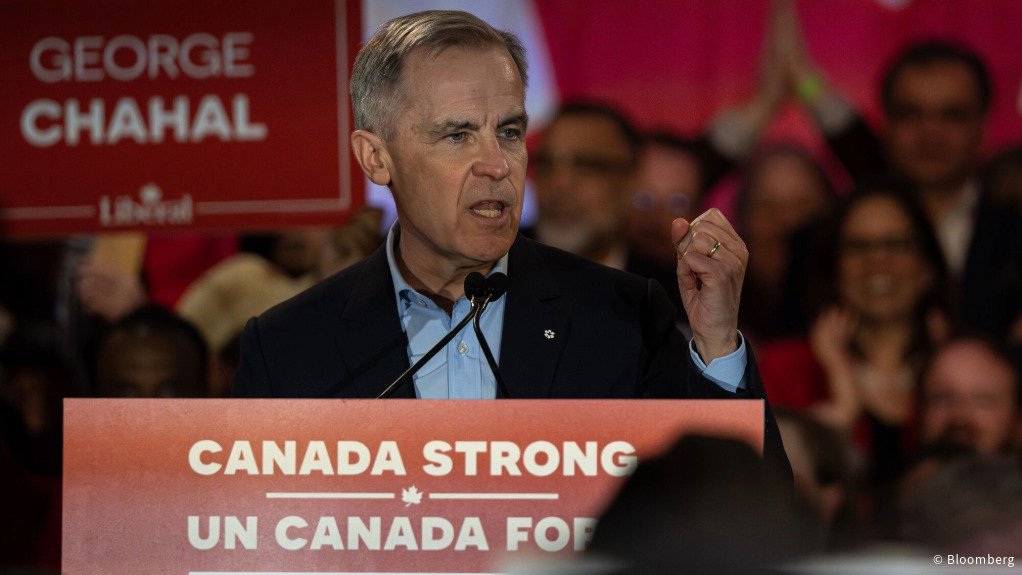Prime Minister Mark Carney pledged to make Canada the world’s “leading energy superpower” through a plan that includes establishing a single office that would decide on major projects within two years.
The Liberal Party leader said at a campaign stop in Calgary that his government would create a Major Federal Project Office with a “one project, one review” mandate. The aim would be to eliminate duplication of federal and provincial environmental assessments, speeding up reviews.
“We are going to aggressively develop projects that are in the national interest in order to protect Canada’s energy security, diversify our trade, and enhance our long-term competitiveness — all while reducing emissions,” Carney said in a statement. “We can lead the energy transition while ensuring affordable energy at home and building the strongest economy in the G-7.”
Canada ships some four-million barrels of crude a day to the US — the vast majority of its production — and also relies on a pipeline that goes through midwestern states to supply provinces in the east. US President Donald Trump’s threats to Canada’s economy and sovereignty have intensified pressure to accelerate projects that reduce its dependence on the US.
Carney’s rival in the April 28 election, Conservative Leader Pierre Poilievre, has also pledged a single project office with a maximum timeline for decisions of one year. Poilievre has said Indigenous communities would be involved at the outset of major projects, but Carney on Wednesday said Poilievre’s plan fails to account for Indigenous rights.
The Liberal leader also announced Wednesday he would expand a critical minerals exploration tax credit. His plan also includes developing a trade and energy corridor through a C$5-billion fund to build infrastructure to reach export markets.
Though Carney grew up in the oil-rich province of Alberta, voters there overwhelmingly skew Conservative and tend to be skeptical of Liberal promises to support the energy sector. Poilievre has promised to unleash oil and gas investment through tax cuts, deregulation and the creation of a “national energy corridor” that would include pre-approvals from various levels of government for major projects.



